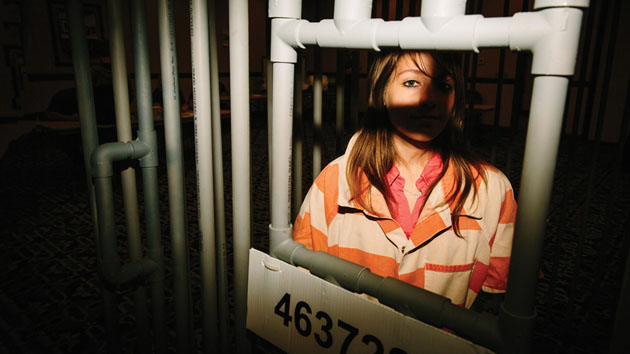
Getty
As they resume their legislative sessions at the start of the new year, politicians in two Southern states are caught up in debates about how to best teach kids about sex.
Kentucky currently has no law dictating how sex education should be taught, although the state’s Department of Education is working on guidelines for health classes in public schools, which generally include some form of sex ed. State Democrats recently introduced House Bill 80 that would require “age appropriate” sex ed to begin in the fourth grade and continue through 12th grade.
Republican state Sen. Stephen Meredith, on the other hand, wants every grade to learn the same thing: He introduced a Senate bill to require sex ed classes to teach that “abstinence from sexual activity outside of marriage is the expected standard for school-age children.”
In a Senate committee hearing on Thursday to discuss Meredith’s bill, state Sen. Danny Carroll, a Republican who voted in favor of SB 71, explained his rationale for requiring abstinence and monogamy as the standard in sex ed classes: “As a society, if we don’t set some baselines for our children, there are going to be no limits,” he said, according to the Louisville Courier-Journal.
The bill was criticized for its narrow ideology by comprehensive sex education advocates and community faith leaders, the Courier-Journal reports. Rev. Lauren Jones Mayfield, a pastor at Highland Baptist Church in Louisville, said the bill “assumes sex is between a married man and woman in a Christian home,” and criticized abstinence education for placing responsibility on women to be gatekeepers and creating a culture of shame around sex.
The bill passed the Senate Education Committee 7-2 on Thursday—all seven men on the committee voted in favor of it.
In neighboring Tennessee, Knoxville Republican state Sen. Becky Duncan Massey introduced legislation to allow sex education instructors to discuss sexual abuse in their classes without fear of violating a 2012 measure known as the “Gateway Law.” I wrote about the Gateway law for Mother Jones in a feature about how the state’s sex ed policies affected me long into adulthood:
In 2012, Tennessee legislators passed a law that marked a new extreme, requiring anyone teaching sex ed to teach abstinence as the only legitimate option, and banning any discussion that could be perceived as encouragement of “gateway sexual activity.” Educators who crossed this murky line could face legal action. (In reaction, Stephen Colbert deadpanned that “kissing and hugging are the last stop before reaching Groin Central Station,” so it’s important to ban “all the things that lead to the things that lead to sex.”) To define the key words, “sexual activity”—touching someone’s “primary genital area, groin, inner thigh, buttock or breast”—the legislators cribbed from Tennessee’s criminal code.
In 2014, state lawmaker’s passed “Erin’s Law,” which encouraged instructors to teach kids to report abuse. But a Tennessean investigation found that most schools were bypassing discussion of sexual abuse for fear of running afoul of the 2012 law. In 2016, only 250 of Tennessee’s 1,833 public schools requested free lesson plans about sexual abuse from the Sexual Assault Center.
Massey’s bill was introduced the same day the Tennessee comptroller released a report that criticized the Tennessee Department of Education for not collecting enough data on the topic, making it “difficult to determine the extent to which…specifically, the subject of sexual abuse prevention is taught in schools.”













